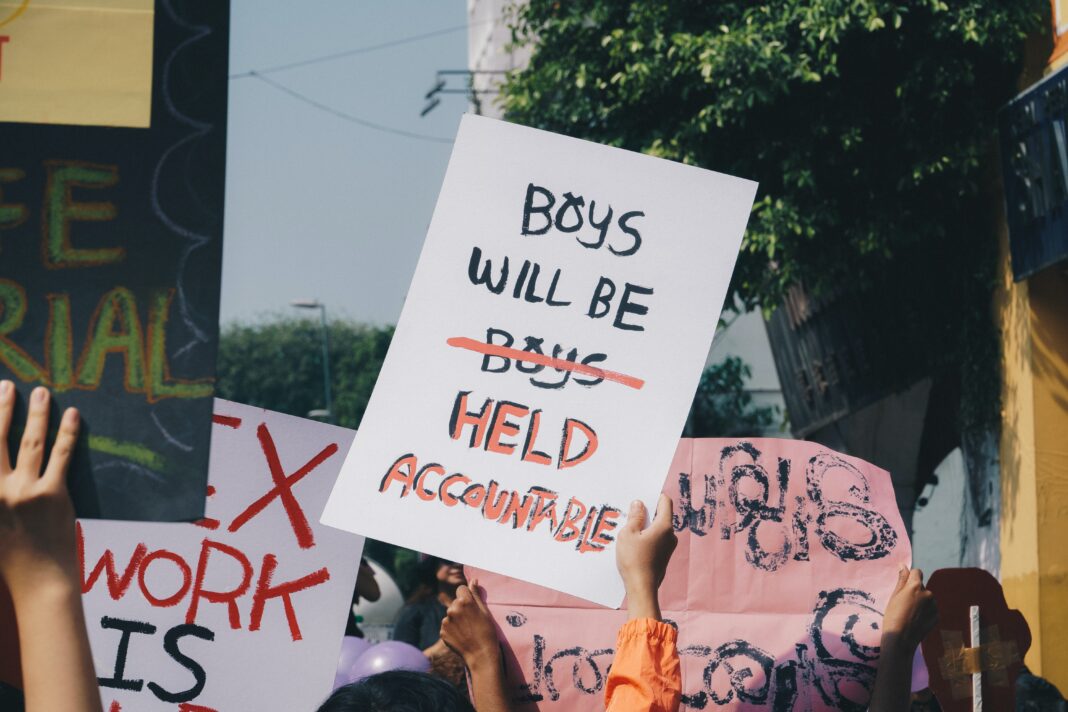“Learn this once and learn it well, my daughter. Like a compass needle always points north, a man’s accusing finger always finds a woman” – Khalid Hosseini, A Thousand Splendid Suns.
When browsing through social media these days, the latest constant appears to be domestic violence; and more specifically, crimes and violence against women. We see the focus on Pakistan and the atrocities taking place there on a daily basis. While violence against women is certainly not a new concern, it is one that hardly ever receives the attention it deserves and needs.
Domestic violence is often defined as any form of threatening behaviour towards a member of the household or towards family and sometimes friends. A lot of different kinds of abusive behaviours fall under the heading of domestic violence. It includes, but is by no means limited to, the broad areas of emotional, economical, psychological, physical, and sexual abuse. Most acts of domestic violence are about power, control and dehumanising the victim.
Domestic violence of women in Pakistan
It seems that domestic violence, especially the kind directed towards women, is more common, widespread, and normalised in developing countries. Pakistan is rated as the sixth most dangerous country in the world for women. The country is extremely patriarchal in almost every way a place can be. Although Pakistan is supposed to be an ‘Islamic’ state that follows ‘the laws of religion’, it is a desperately poor example of the teachings of a religion that literally means ‘peace’. In fact, it is often seen that men use their twisted misunderstanding of religion as an excuse to justify their actions and hurt the women in their homes. They also use it to condemn all women in society who do not conform to their ideas of what a woman is.
This patriarchal ideology is deeply embedded in Pakistani culture as well as the culture of surrounding countries, such as India and Afghanistan. The quote at the beginning is from a book based in Afghanistan and its words ring true for Pakistanis as well. For many decades, children in these countries have been raised to believe that men are superior to women and that a woman is only of value if she is submissive, obedient, and docile. Men and boys are always given priority in all matters of life, especially regarding anything within the home. For example, men are served by the women and they are fed first – in fact, they are put first for everything. Their opinion is most highly regarded (and often the only one that matters), they are always right, all their jobs are done for them by women (cooking, cleaning, washing etc.) and they are given respect, whether they deserve it or not.
While these may seem like small points, it is this very ideology that promotes male entitlement and leads the impressionable young to develop unhealthy gender roles. Men in countries like Pakistan are usually the breadwinners and women are financially dependent. This unsettling reality remains even today, in the 21st century, especially in the lower classes and is often the reason women are unable or unwilling to escape their prisons.
Recent rise in cases
The whole month of July 2021 was a constant cry for help from the women of Pakistan, with abuse and violence erupting throughout the country in all the social classes. The violence towards women in Pakistan is a daily if not hourly struggle. During that month however, these daily atrocities were brought to bigger public attention with the help of social media and a demand for justice. Individual cases have gained prominence as more and more people share the stories and voice their outrage at the cruelty, as well as the lack of action taken by the country’s justice system.
Earlier in that month a video began to circulate on social media of two men, Aftab and Arshad, violently beating their sister and mother using weapons like a motorbike helmet and hammer. It is said the attack was brought on by a conversation about inheritance. On initial report, the police refused to register an ‘FIR’ but as the victim’s son reached out online for support, the two men were arrested but they are yet to be tried for their crimes. The Pakistani justice system is not perfect and is incredibly slow and flawed when it comes to justice for the country’s females. The victim’s son, a young boy Mohammad Arslan, regularly posts on Twitter with updates and the lack of progress with the case.
This incident took place on July 3rd and not three days later, the government of Pakistan rejects the Domestic Violence bill as the PM Imran Khan succumbs to pressure from “religious” clerics who were against it.
Qurtulain Ainy
A week after this bill was rejected, a man in Hyderabad, Umar Khalid Memon, tortures and kills his wife, Qurutulain. Again, we see that the police were reluctant to act, this time because of the influential status of the murderer’s family. Qurutulain Ainy was the mother of four young children, the oldest is nine and the youngest only two. Throughout her marriage, Qurutulain would run to her maternal home from her husband’s violence but it was only in her death that her brother and family tried to actually do anything for her; even now it is the power of social networking that is gathering support and demanding justice.
A woman’s suffering, especially in Pakistan is only ever given any importance or significance if it is to the extremes. A lot of women know that no one will hear them when they speak of domestic abuse as they are often told ‘at least they haven’t killed you’, ‘others have it worse’ etc. The normalising of abusing women in the home means that it will continue to get worse, and each assault will only become more aggravated and brutal. There is a desperate need for change in the way Pakistanis are raising their children. Young girls are often told to submit, be quiet, not to voice opinions and to put themselves in an inferior position to men, be that a father, brother, or husband. Their role as a woman is outlined to serve and submit to the men in their lives, which gives men the unjustified sense of superiority, the patriarchal view that they have complete control over the women in their lives, and permission to basically do whatever they want, whenever they want, because females are less than human in their eyes and do not deserve to be treated well.
Bushra
Three days after the murder of Qurutulain, social media was a buzz with yet another incident of violence. Raza Ali open fired at his wife and children, killing the former and seriously injuring the latter. The couple were separated at the time, and Bushra and her children were living in a separate dwelling as she worked and supported her family on her own. The murderer’s daughter has described her father as a violent and abusive drug addict, who did nothing for the family and as a result, they made their own way without him until he showed up at their house, shot at them and killed their mother. While the incident took place earlier in the month, the critically injured siblings were forced to act, trying to gain support on social media because their father was still on the loose and they were all living in constant fear. The man is yet to be found and tried even with eyewitnesses, pictures and details of events and history. The police have done little to get justice for the murdered Bushra.
Silsila Alikhil
While the aforementioned incidents took place in the working and lower classes of the country, it does not mean that violence towards women is limited to or caused by illiteracy and class. The patriarchal ideology is far too ingrained in the country’s culture and mentality. Cases of violence have recently become public that are taking place in the upper classes. On July 18th, news began to spread of the kidnapping and torture of Silsila Alikhil, who is the daughter of Afghanistan’s ambassador to Pakistan. The incident took place in the capital city of Islamabad when the victim was on her way home. She was kidnapped and tortured for hours by unknown people and was later freed by her kidnappers. There have yet to be any arrests and there has been little to no progress on the case.
Noor Mukadam
Out of all the majorly highlighted and broadcasted incidents, the one that seems to have shook the nation is the murder of Noor Mukadam. A few days had passed since the incident of Silsila Alikhil’s kidnapping when the news became all about the brutal murder of young Noor. There are many reasons why Noor’s story went viral. It was a horrible crime: she was tortured, shot at, killed and beheaded, by someone she was quite close to.
Noor was the daughter of a diplomat and the crime, again, took place in Islamabad in the well-off F-7 sector of the city. Her murderer, Zahir Jaffer, is a family acquaintance and the son of an influential businessman. He is also a US National. The motive behind the murder is one that is so very common in Pakistan, one that terrifies young girls and more often than not prevents them from speaking their mind – Zahir Jaffer murdered Noor Mukadam because she refused his proposal of marriage.
A man’s ‘honour’ and ego were hurt and so he killed a woman. Similar to the murder of Qandeel Baloch in 2016, her brother felt his honour and ego had been damaged by his sister as she lived her life her own way and not how he wanted. When a man doesn’t get his way in Pakistan or feels hurt, threatened or ridiculed, of course a woman is to blame! And because women are lesser beings, men can do what they want with them.
It is a sad truth to see that nothing has changed in Pakistan over the years. Women have always been in danger in Pakistan and it seems unlikely that change will come. It took ten whole days for Imran Khan to make any kind of comment regarding Noor’s death, and of all the cases listed not one has been dealt with and brought to justice. Even with a national cry for change and social media outrage, concrete action has yet to be taken and though the country’s heinous statistics of violence, especially towards women, are becoming an international focus, Pakistan has yet to make a decision regarding the domestic violence bill.
Demand for justice
While many social networks are still flooding with demands for justice, the unfortunate truth remains that new news will replace and justice for women in Pakistan will become a forgotten trend. The only real way to tackle this problem is for people in power to care and act, and for those of us at home to address gender inequality within our households. Call out the aunties and uncles who ask, ‘Why was Noor at his house’, those who say, ‘listen to your husband and don’t talk back’, those who have one rule for their sons and another for their daughters. Call out the people who find ways to blame the victim. Ask the victim blamers what to do if the danger is in the house, if it is a father or a brother or a husband.
No person has the right to murder another. It is not a question of whether the girl is good or bad, or if she is “Islamic” or not, it does not matter why she was there or what she was wearing, nobody deserves to be murdered and tortured the way countless women are in Pakistan every single day, often times in their own homes. It is always the fault of the attacker, never the victim, and that is something that needs to be understood if there is ever going to be any change.
Pakistan is and always has been a patriarchal society, for men by men, and the men that live there have an unjust sense of superiority and power. They know they will not be questioned and so there is no fear of punishment which means these crimes will continue unless the government takes action and instils fear of consequence. Violence against women is a worldwide issue, however, in Pakistan it is common and normal due to lack of law enforcement. Men, even these Pakistani men, will behave better in a foreign country due to the fear of being caught and punished. Many women will testify to this. Our girls are denied voices from an early age, and this creates a knock-on effect forever dooming them to danger.
Raise your boys right and raise your girls strong because, sadly, changing a society can take decades if not longer and a government needs to consider an issue to actually be a problem to do anything about it. And let’s face it, it’s mostly men up there.












